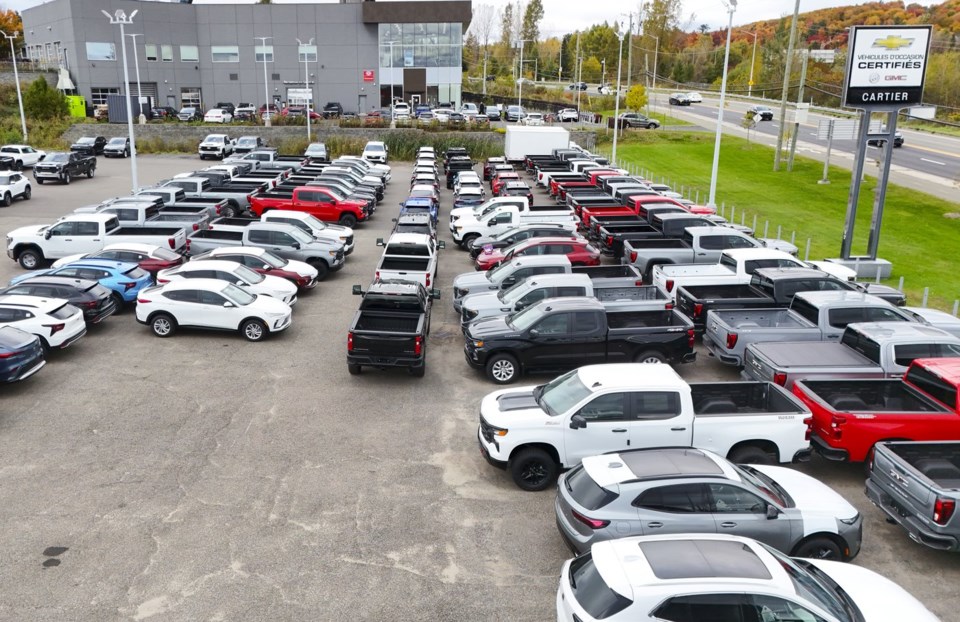Experts say U.S. tariffs on Canadian auto imports will drive prices higher for both new and used cars.
Sean Mactavish, CEO of used-car marketplace Autozen, says prices are already rising on some used cars as sellers anticipate buyers looking for a better deal compared to a new vehicle.
"New car prices go up. People (look) into the used cars, and then that increase in demand drives the prices up for used vehicles," he said.
Mactavish says consumers are likely to trade down to used cars or even delay major vehicle purchases as they grapple with uncertainty and higher prices.
Once the tariffs start rolling through the supply chain, prices on new cars are expected to go up too, said Baris Akyurek, vice-president of insights and intelligence at Autotrader.ca.
"It's inevitable that there's going to be an increase in new car prices," said Akyurek.
He added that demand for used cars was rising for weeks before the new tariffs were enacted as consumers anticipated what could be coming.
"We believe that some of those consumers who wanted to get ahead of these potential increases, they've already pulled the trigger," he said.
"We've been seeing, especially since the beginning of March, that the used car market is pretty hot."
U.S. President Donald Trump has enacted 25 per cent duties on imported vehicles, with temporary reprieve for some parts compliant with the Canada-U.S.-Mexico free trade agreement.
Prime Minister Mark Carney has announced retaliatory tariffs on automobiles coming in from the U.S., adding more costs to the supply chain.
Trump also enacted steel and aluminum tariffs on March 12, which add more cost pressure for automakers.
Auto industry leaders have warned the tariffs will lead to plant shutdowns. Stellantis has already temporarily paused operations at its plant in Windsor, Ont.
Shutdowns will add further pressure to the supply of cars, which also means higher prices, said Mactavish.
"We're going to see those shortages show up," he said.
During the COVID-19 supply crunch for vehicles, a similar rise in used-car prices happened, noted Mactavish. This time, it's likely to be particularly concentrated on certain makes and models, he said.
"It depends on where that car is made, not just where the brand is nationally," he said.
The timing of price increases on new cars will depend in part on how much inventory a dealer has, he said.
With the costs of vehicles and repairs expected to rise, this may also drive up insurance premiums, according to Ratehub.ca.
"Increased auto and parts prices could also raise total loss claims, affecting premiums for all Canadian policyholders," said vice-president of insurance Matt Hands in a statement.
Trump has also said the major three automakers have to move production back to the U.S. But this is something that would take the industry years to do, said Mactavish.
"It's pretty tough to pick up a manufacturing plant and just move it to another place," he said.
"If those companies ultimately do pull out, that's some significant downturn to that industry."
This report by The Canadian Press was first published April 4, 2025.
Rosa Saba, The Canadian Press




